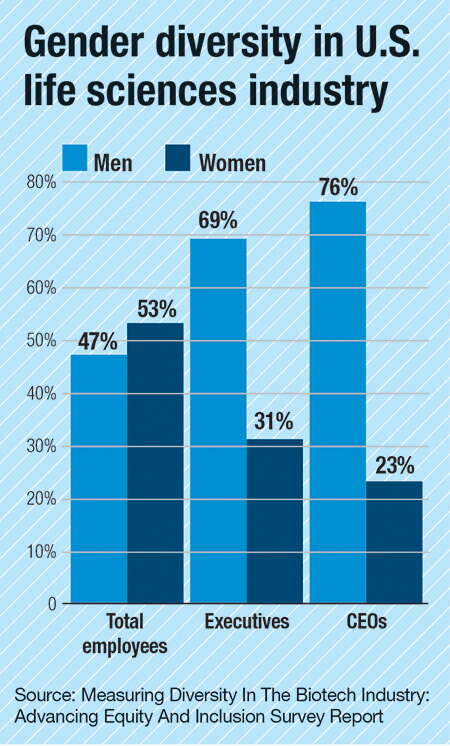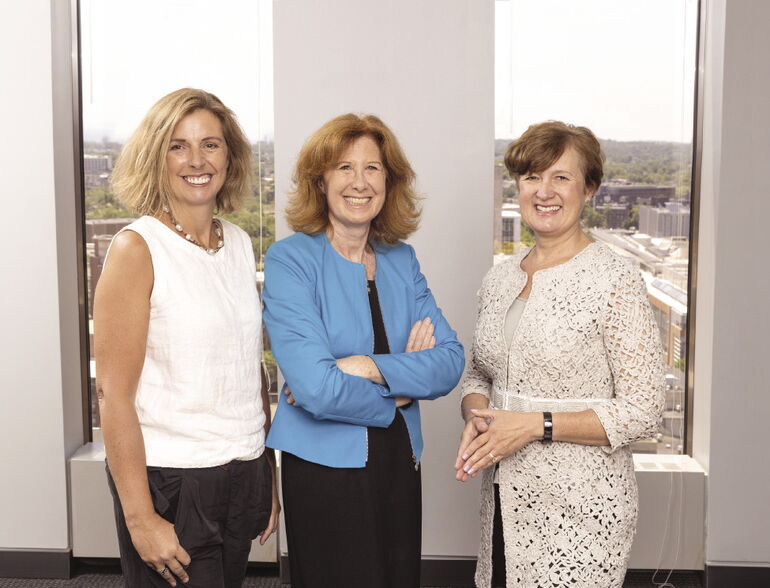
Processing Your Payment
Please do not leave this page until complete. This can take a few moments.
-
News
-
Editions
-
- Lists
-
Viewpoints
-
HBJ Events
-
Event Info
- 2024 Economic Outlook Webinar Presented by: NBT Bank
- Best Places to Work in Connecticut 2024
- Top 25 Women In Business Awards 2024
- Connecticut's Family Business Awards 2024
- What's Your Story? A Small Business Giveaway 2024 Presented By: Torrington Savings Bank
- 40 Under Forty Awards 2024
- C-Suite and Lifetime Achievement Awards 2024
- Connecticut's Health Care Heroes Awards 2024
-
-
Business Calendar
-
Custom Content
- News
-
Editions
View Digital Editions
Biweekly Issues
- April 29, 2024
- April 15, 2024
- April 1, 2024
- March 18, 2024
- March 4, 2024
- February 19, 2024
- February 5, 2024
- January 22, 2024
- January 8, 2024
- + More
Special Editions
- Lists
- Viewpoints
-
HBJ Events
Event Info
- View all Events
- 2024 Economic Outlook Webinar Presented by: NBT Bank
- Best Places to Work in Connecticut 2024
- Top 25 Women In Business Awards 2024
- Connecticut's Family Business Awards 2024
- What's Your Story? A Small Business Giveaway 2024 Presented By: Torrington Savings Bank
- 40 Under Forty Awards 2024
- C-Suite and Lifetime Achievement Awards 2024
- Connecticut's Health Care Heroes Awards 2024
Award Honorees
- Business Calendar
- Custom Content
Women in bio: Greater New Haven leaders steer effort to diversify top ranks of CT’s burgeoning life sciences industry
 PHOTO | STEVE LASCHEVER
(From left) Morag Grassie, Susan Sobolov and Erika Smith are all players in New Haven’s life sciences industry trying to make sure women are represented in the sector’s leadership roles.
PHOTO | STEVE LASCHEVER
(From left) Morag Grassie, Susan Sobolov and Erika Smith are all players in New Haven’s life sciences industry trying to make sure women are represented in the sector’s leadership roles.
When Rebecca Frey worked as a vice president of global operations at Alexion Pharmaceuticals, she was part of a biotech leadership team where the women outnumbered the men.
She knew that level of gender diversity was rare in her industry. Yet she wasn’t fully prepared for what she encountered when she left in 2017 to take a VP role at a small New York biotech startup, and later at small startups in Boston.
“I suddenly found myself in a space where there were very few women, or people of color, in leadership,” says Frey, a Latina. “That was a harsh reality at the time.”
If national statistics are any indication, her experience isn’t surprising. A 2020 survey of 100 biotech companies released in June by the industry group BIO found that while women made up 47% of total employees, they account for just 31% of executives and 23% of CEOs.
That was only a slight improvement from 2019’s report, when women comprised 46% of teams but only 30% of executives, and just 16% of CEOs.
But Frey is part of a growing network of women bioscience leaders in Greater New Haven and across the state — from academics to chief executives to investors — who are trying to move the needle in Connecticut.
They are hoping to pool their influence to build a pipeline of women biotech leaders and raise the profile of the talented scientists and executives who are already here, which they hope in turn will propel more women into upper management.
Their efforts have picked up steam in the last few months, fueled in part by a renewed focus on diversity, equity and inclusion following protests over the death of George Floyd last summer.
“There’s definitely momentum and it’s not just here. It’s pretty much across the bioscience industry nationally now,” said Frey, who is now chief operating officer of Branford’s EvolveImmune Therapeutics and also sits on the boards of Halda Therapeutics and Elm Street Ventures, a New Haven venture capital firm. “There’s a lot going on and that’s why I feel very encouraged.”
Erika Smith, CEO of ReNetX Bio, a New Haven biotechnology firm developing a drug to reverse the damage from spinal cord injuries, said she first met Frey at an event in Boston and they instantly bonded.
The pair discussed all the powerhouse women life science leaders they knew around the state, but how little they interacted, partly because Connecticut’s bioscience companies are scattered around the state. They started brainstorming about what they could accomplish if they joined forces.
Last fall, they launched Executive Women in Bio, a group that expanded last April into Connecticut’s first chapter of the national organization, Women in Bio.
“There’s just something about women helping women on the executive side,” Smith said. “We don’t have the ‘old boys’ network,’ so to speak, so I think we all really want to help each other.”
The chapter is led by Susan Sobolov, a former Alexion R&D leader and Connecticut resident who is now chief operating officer of New Jersey-based Caelum Biosciences. Sobolov said the group already has 157 members.
She said large pharma companies like Pfizer and Alexion have long had their own women’s networking groups. But in Connecticut, there are a lot of small startups where women may not have “critical mass.”
“Because the whole company is only 12 or 15 people,” she said.
She said Women in Bio also covers other professions that touch on the life sciences industry, including lawyers, investment professionals and university professors.
“It gives us an opportunity to create networks that we wouldn’t have made in our own disciplines and within our own organizations,” she said.
Strong talent pool
Although there are no hard numbers on how Connecticut life science companies compare nationally when it comes to gender parity, Frey said her executive group database lists 75 women in senior leadership roles (vice president or above), or who are senior faculty members in academia. Of those, roughly half are C-suite executives and 15 are CEOs.
“That’s a very strong cohort considering that there are probably 85 to 100 bioscience companies overall,” Frey said.
“There’s actually a huge and incredibly talented pool of women here and I see that as a sign that if we do the work to continue to advance them, we can actually become a leader in this space when it comes to diversity,” said Frey.
Sobolov said the group wants to elevate and provide mentorship opportunities for women at all stages of the pipeline, starting with young girls who may be thinking about a career in the sciences.
It also seeks to encourage and prepare members to seek seats on the boards of biotech companies. An April analysis of 140 venture-backed healthcare companies by investment fund Deerfield Management found women made up only 10% of board director roles.
Morag Grassie, senior associate director of the Blavatnik Fund for Innovation at Yale, said she had an experience similar to Frey’s when she attended her first Yale Life Sciences Pitchfest in 2018. The annual Shark Tank-style contest has been a springboard for numerous successful startups.
She remembers scanning the lineup of presenters that year and thinking: “Where are all the women?”
“I think there were maybe just one or two among a very large number of applicants,” she said.
As a result of that experience, Grassie and two of her colleagues at Yale’s Office for Cooperative Research, Michelle McQueen and Lolahon Kadiri, launched AmplifyHerScience, a new program to help women scientists commercialize their research.
Historically, men have been more likely than women to start companies based on their lab research, a contributing factor to the gender gap in top leadership.
Grassie said one of the biggest obstacles for successful women faculty members is time, since many are also tapped for multiple boards and committees and are also juggling family responsibilities.
“Our goal is to try to remove those barriers by making it as easy as possible for them to find the opportunities [to pitch their ideas], and then also helping to coach them so when they do invest the time, they have a better chance of success,” Grassie said.
She said the program is already making inroads. For example, two Yale scientists coached through the program were among 12 women entrepreneurs selected for Equalize 2021, a national pitch competition for women entrepreneurs, she said.
Building a community
Another sign of progress: four of the nine winners at this year’s Yale Innovation Summit, the largest entrepreneurial event on campus, were women, including ReNetX CEO Smith, who took first place in the pharmaceuticals and biotherapeutics category.
“What I noticed was that about 25% of the companies pitching this year were women led,” said Usha Pillai, a biotechnology strategist for the Economic Development Corporation of New Haven, who also works as a diversity consultant. “I don’t ever remember seeing that many women pitching.”
When she began working in the New Haven biotech space, she said she “could probably count the number of prominent women on my fingers.”
She said one of the major reasons for the shift is that women like Frey, Smith, Sobolov and others are building a community.
“It provides visibility for local leaders to know each other and engage with each other and talk about challenges and success strategies,” she said. “It happens very naturally for male leaders. They go out for golf, they go out for drinks. Having a space where women can engage in these conversations is critical.”
Pillai, who co-chairs a peer-to-peer mentoring program for the new Women in Bio chapter, said companies can also help by taking a hard look at whether there are barriers within their organization that are holding women back, such as unconscious mindsets about women or policies that discourage work-life balance.
“What we want to do is get more men [in leadership] to be our allies,” she said. “We need to work together.”


2022 Giving Guide
This special edition informs and connects businesses with nonprofit organizations that are aligned with what they care about. Each nonprofit profile provides a crisp snapshot of the organization’s mission, goals, area of service, giving and volunteer opportunities and board leadership.
Learn more
Subscribe
Hartford Business Journal provides the top coverage of news, trends, data, politics and personalities of the area’s business community. Get the news and information you need from the award-winning writers at HBJ. Don’t miss out - subscribe today.
Subscribe
2024 Book of Lists
Delivering Vital Marketplace Content and Context to Senior Decision Makers Throughout Greater Hartford and the State ... All Year Long!
Read Here-
2022 Giving Guide
This special edition informs and connects businesses with nonprofit organizations that are aligned with what they care about. Each nonprofit profile provides a crisp snapshot of the organization’s mission, goals, area of service, giving and volunteer opportunities and board leadership.
-
Subscribe
Hartford Business Journal provides the top coverage of news, trends, data, politics and personalities of the area’s business community. Get the news and information you need from the award-winning writers at HBJ. Don’t miss out - subscribe today.
-
2024 Book of Lists
Delivering Vital Marketplace Content and Context to Senior Decision Makers Throughout Greater Hartford and the State ... All Year Long!
ABOUT
ADVERTISE
NEW ENGLAND BUSINESS MEDIA SITES
No articles left
Get access now
In order to use this feature, we need some information from you. You can also login or register for a free account.
By clicking submit you are agreeing to our cookie usage and Privacy Policy
Already have an account? Login
Already have an account? Login
Want to create an account? Register
Get access now
In order to use this feature, we need some information from you. You can also login or register for a free account.
By clicking submit you are agreeing to our cookie usage and Privacy Policy
Already have an account? Login
Already have an account? Login
Want to create an account? Register






0 Comments